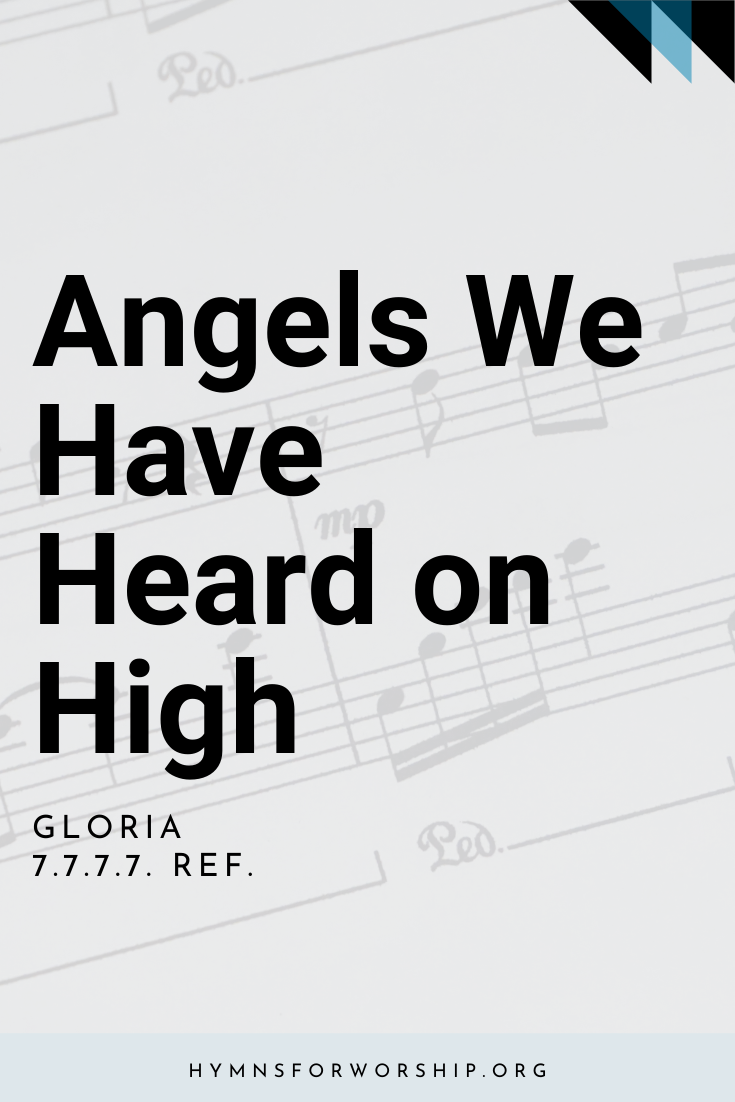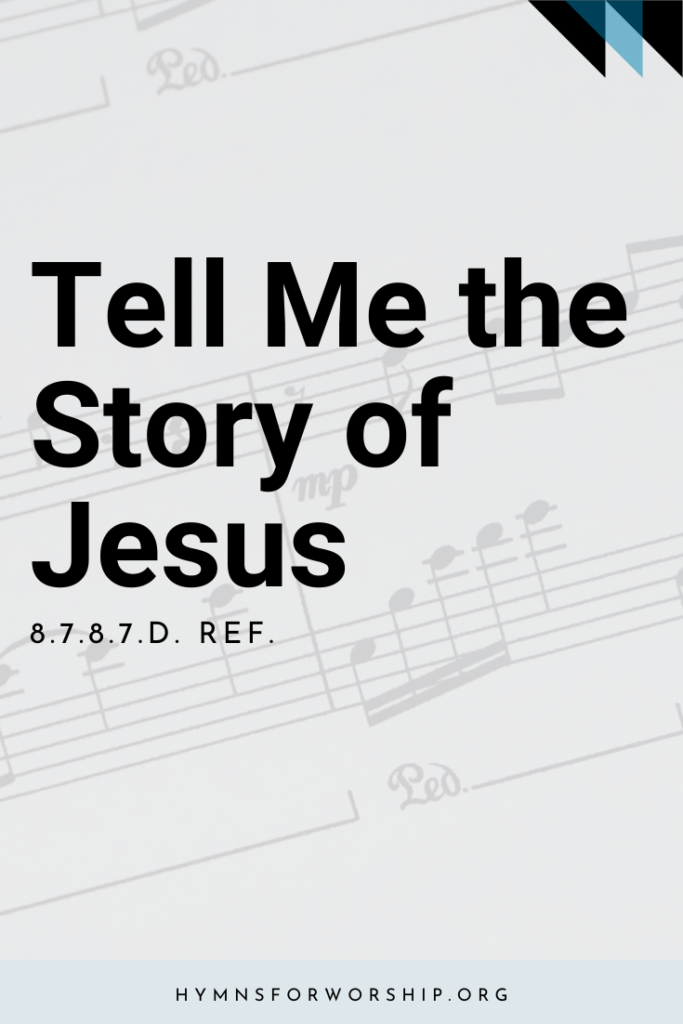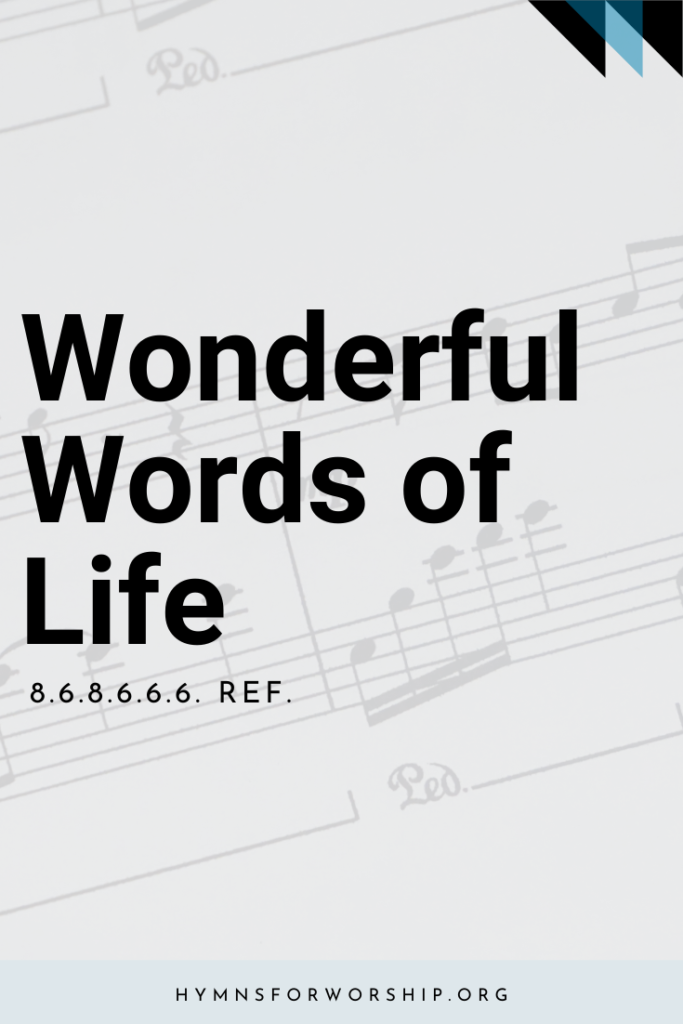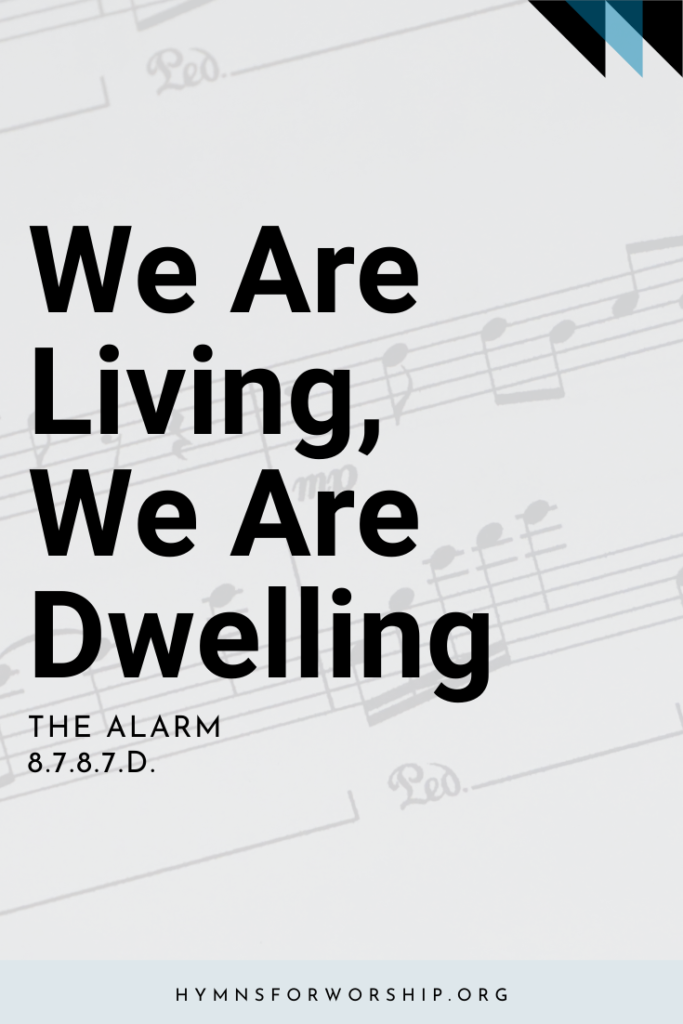JESUS CHRIST >> Birth
SDAH 142
Angels we have heard on high
Sweetly singing o’er the plains,
And the mountains in reply
Echoing their joyous strains.
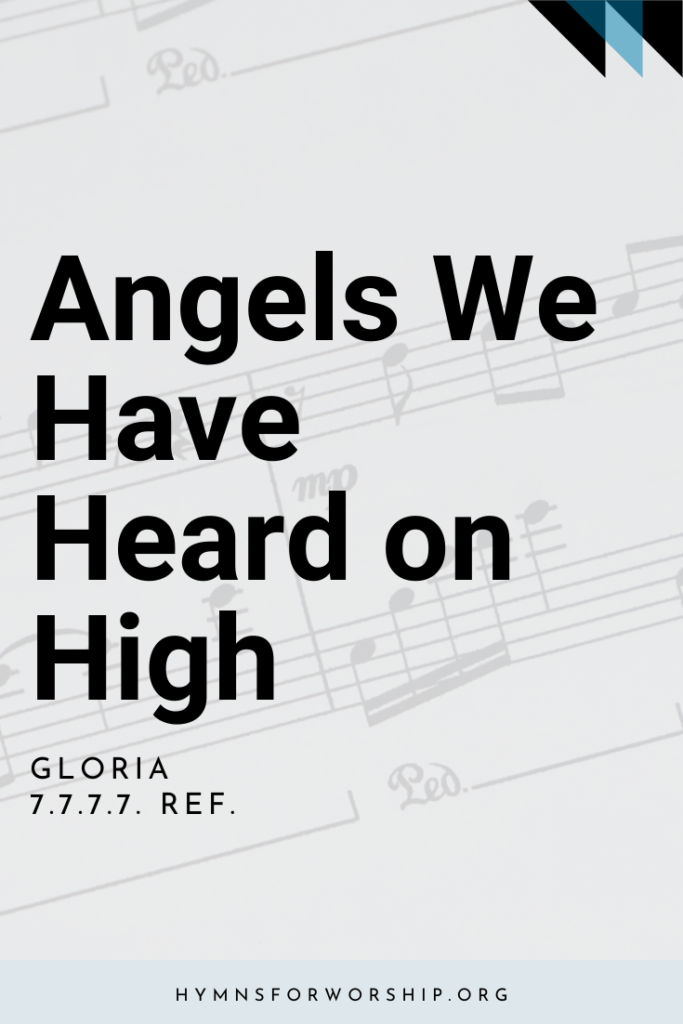

Text
1
Angels we have heard on high
Sweetly singing o’er the plains,
And the mountains in reply
Echoing their joyous strains.
Refrain
Gloria, in excelsis Deo!
Gloria, in excelsis Deo!
2
Shepherds, why this jubilee?
Why your joyous strains prolong?
What the gladsome tidings be
Which inspire your heavenly song?
3
Come to Bethlehem and see
Christ Whose birth the angels sing;
Come, adore on bended knee,
Christ the Lord, the newborn King.
4
See Him in a manger laid,
Whom the choirs of angels praise;
Mary, Joseph, lend your aid,
While our hearts in love we raise.

Hymn Info
Biblical Reference
Luke 2:8-14
Translator
Tr. in Crown of Jesus, 1862, alt., Adapted by Earl Marlatt (1892-1976)
Text Source
French carol
Copyright
from the New Church Hymnal copyright 1937 by Flemming H. Revell Company; renewal 1965 H. Augustine Smith, Jr. Published by Flemming H. Revell Company
Hymn Tune
GLORIA
Metrical Number
7.7.7.7.Ref.
Arranger / Harmonized / Paraphrased
Arr. by Edward Shippen Barnes , 1937 (1887-1958)
Tune Source
French carol
Theme
BIRTH OF JESUS CHRIST
Hymn Score
Piano Accompaniment
Notes
Get to know the hymns a little deeper with the SDA Hymnal Companion. Use our song leader’s notes to engage your congregation in singing with understanding. Even better, involve kids in learning this hymn with our homeschooling materials.
Jan R.H. de Smidt wrote a book in 1932, Les Noels et la Tradition Populaire (Noels in the Popular Tradition), in which he gives the opinion that this traditional French carol, both text and tune, dates from the eighteenth century. It was first found in Nouveau recueil de cantiques (New Collection of Hymns), 1855. The English translation is by Henri Frederick Hemy, published in Crown of Jesus Music, Part II, 1862.
The practice of singing part of the words in the vernacular and part in Latin is called “macaronic.” “Gloria in excelsis Deo,” or “Glory to God in the highest,” is a direct quote from the earliest recorded Christian hymn of praise, voiced by the angels who appeared to the shepherds announcing the birth of Jesus: “Glory to God in the highest” (Luke 2:14). The carol was first used in the Eastern Church as a morning hymn.
Henri Frederick Hemy was born November 12, 1818, at Newcastle-upon-Tyne, England, of German parents. He was a church organist who also taught music at St. Cuthbert’s College, Upshaw, in Durham. Besides the book mentioned above, he published the very successful Royal Modern Tutor for the Pianoforte, 1858. He died at Hartlepool in 1888. Hemy also composed the tune to SDAH 304, ST. CATHERINE.
The adaptation SDAH uses was made by Earl Bowman Marlatt in 1937. Born May 24, 1892, at Columbus, Indiana, Marlatt earned the B.A. from DePauw University in 1912 and the Ph.D. from Boston University in 1922. After graduate study at Oxford and the University of Berlin, he taught literature and religious education at Boston University and at Wellesley, then was dean of the School of Theology at Boston University from 1938 to 1945. He was associate editor of the American Student Hymnal, 1928, and published several volumes of poetry.
The French traditional melody GLORIA (also known as IRIS) has always been wedded to this text. The arrangement is by Edwin Shippen Barnes, born September 14, 1887, at Sea Bright, New Jersey. He graduated at Yale and studied under the great organist Louis Vierne in Paris before serving in Presbyterian churches in New York; Philadelphia; and Santa Monica, California. He retired to the beautiful mountain community of Idyllwild, California, in 1954. He donated a small organ to the church there and played until his death in 1958.

